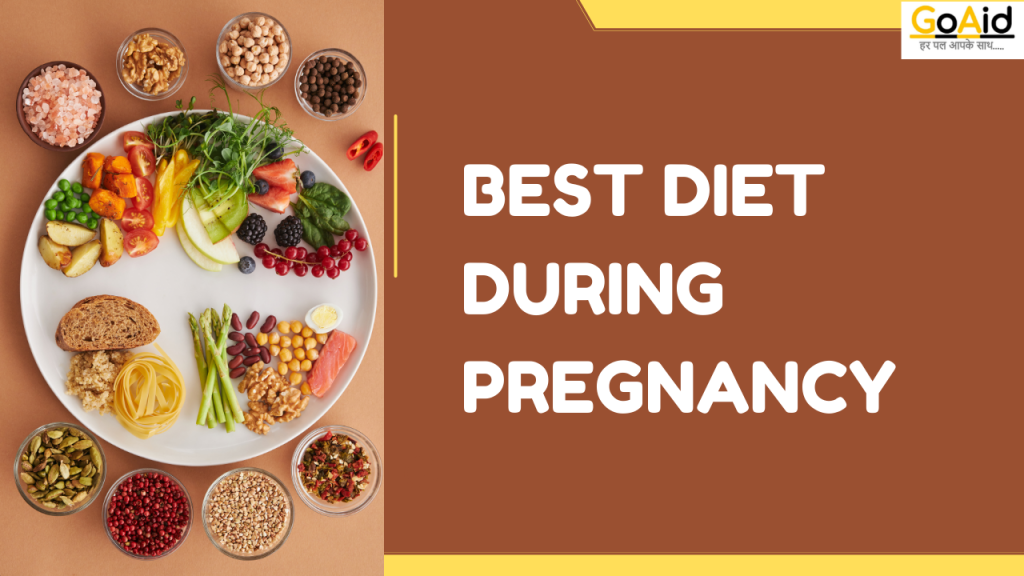Considering the Precautions during pregnancy offers many advantages during the labor. Not only that, but key precautions can also help in maintaining the health of both mother and baby. This is why, generally women who are going to be mothers, search for many keywords like “Precautions during Pregnancy”, “Pregnancy Safety Tips”, “Complete Guide to the Pregnancy” & many other searches for pregnancy precautions.
If you are also looking for similar kinds of searches and want to know about pregnancy precautions then read this blog fully, this is a comprehensive guide to pregnancy precautions. We have added everything related to the pregnancy precautions or precautions during the pregnancy. This blog will help you with everything about what you shouldn’t do during he pregnancy.
So, let’s start:
Comprehensive Guide to Pregnancy Precautions
This blog contains comprehensive details regarding the precautions during pregnancy. If you are an expecting mother and looking for a complete details about what should you need to do in your pregnancy like, what to avoid, what to do, what to eat, how to live and how to change your day to day life for easy labor and best health for your baby, then this blog will provide you comprehensive details about that.
What are Pregnancy Precautions?
Pregnancy precautions are guidelines and measures that expecting mothers should follow to ensure their health and the health of their developing baby. These precautions contain various aspects of daily life, including diet, exercise, medications, and lifestyle choices.
Pregnant women are advised to avoid certain foods and substances that can harm the baby, such as alcohol, caffeine, and raw seafood as pregnancy precautions. Regular prenatal check-ups, taking prescribed prenatal vitamins, and staying hydrated are essential during pregnancy.
Safe exercises and adequate rest are also crucial. Additionally, managing stress and avoiding exposure to harmful chemicals and infections are vital steps in maintaining a healthy pregnancy.
Read More: Steps India Is Taking to Ensure the Safety of Women | Explained
Top 10 Pregnancy Precautions – Top 10 Pregnancy Safety Tips
Pregnancy is a crucial time when a woman needs to take extra care of her health and well-being to ensure the best outcomes for herself and her baby. Here are the top 10 pregnancy precautions and pregnancy safety tips every expecting mother should follow:
1. Balanced Diet
A nutritious diet is essential during pregnancy. Include a variety of fruits, vegetables, whole grains, lean proteins, and dairy products in your meals. Foods rich in folic acid, iron, calcium, and omega-3 fatty acids are particularly important for the baby’s development. Avoid raw or undercooked seafood, unpasteurized dairy products, and processed meats to reduce the risk of foodborne illnesses.
2. Prenatal Vitamins
Prenatal vitamins, especially those containing folic acid, iron, and calcium, are crucial for a healthy pregnancy. Folic acid helps prevent neural tube defects, while iron supports the baby’s growth and development during pregnancy. Always consult your healthcare provider before starting any supplements as pregnancy precautions.
3. Regular Prenatal Check-Ups
Regular prenatal visits allow your healthcare provider to monitor your pregnancy and catch any potential issues early during pregnancy. These check-ups are vital for tracking the baby’s growth, assessing your health, and providing necessary screenings and immunizations as precautions during pregnancy.
4. Safe Exercise
The exercise is beneficial for both mother and baby, helping to reduce stress, improve sleep, and prepare the body for labor. Opt for safe, moderate activities like walking, swimming, and prenatal yoga during pregnancy. Avoid high-impact sports or activities with a risk of falling or injury as pregnancy precautions.
5. Avoid Harmful Substances
Avoid alcohol, smoking, and recreational drugs during pregnancy. These substances can cause severe birth defects, developmental issues, and pregnancy complications. Limit caffeine intake to less than 200 milligrams per day to reduce the risk of miscarriage and low birth weight as pregnancy precautions.
6. Stay Hydrated
Drink plenty of water throughout the day to stay hydrated during pregnancy. Proper hydration helps maintain amniotic fluid levels, supports the increase in blood volume, and aids in the delivery of essential nutrients to the baby as pregnancy precautions.
Also Read: Introduction to the Sitting Positions You Should Know
7. Manage Stress
Chronic stress can negatively affect pregnancy & lead to complications like preterm birth and low birth weight. You need to practice stress-relief techniques such as meditation, deep breathing exercises, and prenatal yoga during pregnancy. You need to ensure you get adequate rest and sleep.
8. Avoid Certain Medications
Some medications can be harmful to the developing baby. Always consult your healthcare provider before taking any prescription or over-the-counter drugs to ensure pregnancy precautions. Inform your doctor about any existing medications you are taking to ensure they are safe during pregnancy.
9. Safe Travel
If traveling, especially by air, take precautions to ensure comfort and safety. Avoid long periods of sitting, stay hydrated, and walk around periodically to improve circulation. Consult your healthcare provider before traveling, particularly during the third trimester during pregnancy.
10. Watch for Warning Signs
Be aware of warning signs that may indicate a problem, such as severe headaches, vision changes, sudden swelling, severe abdominal pain, or decreased fetal movement during pregnancy. Contact your healthcare provider immediately if you experience any concerning symptoms.
Also Read: Why is GoAid the Best Option During a Medical Emergency?
Best Diet During Pregnancy

These are the best diet or list of the top 10 types of diet an expected mother should have during pregnancy:
1. Balanced Diet
A balanced diet includes a variety of foods from all major food groups: fruits, vegetables, grains, protein foods, and dairy. It ensures a comprehensive intake of essential nutrients.
Why is it Beneficial During Pregnancy?
It provides the necessary vitamins and minerals for fetal growth, maternal health, and overall pregnancy wellness. Key nutrients like folic acid, iron, calcium, and protein prevent birth defects, support bone health, and ensure proper development.
2. Mediterranean Diet
The Mediterranean diet emphasizes whole foods, including fruits, vegetables, whole grains, nuts, seeds, legumes, fish, and olive oil, with limited red meat and dairy.
Why is it Beneficial During Pregnancy?
Rich in omega-3 fatty acids, antioxidants, and fiber, it supports heart health, reduces inflammation, and promotes proper fetal brain development. Its balanced approach ensures a variety of nutrients.
3. Plant-Based Diet
A plant-based diet focuses on fruits, vegetables, legumes, nuts, seeds, and whole grains while minimizing or eliminating animal products.
Why is it Beneficial During Pregnancy?
High in fiber, vitamins, and minerals, it supports digestive health and provides essential nutrients. Ensuring adequate protein and iron intake is crucial for fetal growth and maternal health.
4. High-Protein Diet
A high-protein diet emphasizes protein-rich foods like lean meats, poultry, fish, eggs, dairy, legumes, nuts, and seeds.
Why is it Beneficial During Pregnancy?
Protein is essential for fetal tissue and organ development. It helps build and repair tissues, making it vital for both the mother and the growing baby.
5. Low-Glycemic Index Diet
A low-GI diet includes foods that have a minimal impact on blood sugar levels, such as whole grains, legumes, non-starchy vegetables, and some fruits.
Why is it Beneficial During Pregnancy?
It helps manage blood sugar levels, reducing the risk of gestational diabetes. Stable blood sugar levels also contribute to consistent energy levels and better overall health.
6. DASH Diet
The Dietary Approaches to Stop Hypertension (DASH) diet focuses on reducing sodium intake and eating a variety of nutrient-rich foods like fruits, vegetables, whole grains, lean proteins, and low-fat dairy.
Why is it Beneficial During Pregnancy?
It supports healthy blood pressure levels, reducing the risk of preeclampsia. Its emphasis on nutrient-dense foods ensures a well-rounded intake of essential vitamins and minerals.
7. Anti-Inflammatory Diet
An anti-inflammatory diet includes foods that reduce inflammation, such as fatty fish, nuts, seeds, fruits, vegetables, and whole grains, while avoiding processed and sugary foods.
Why is it Beneficial During Pregnancy?
It can help reduce pregnancy-related inflammation, supporting overall health and reducing the risk of complications. The diet’s focus on nutrient-dense foods ensures adequate intake of essential nutrients.
8. Gluten-Free Diet
A gluten-free diet eliminates gluten-containing foods like wheat, barley, and rye, focusing on naturally gluten-free foods such as fruits, vegetables, lean proteins, and gluten-free grains.
Why is it Beneficial During Pregnancy?
For women with celiac disease or gluten sensitivity, it prevents adverse health effects and ensures proper nutrient absorption. A balanced gluten-free diet supports overall pregnancy health.
9. Iron-Rich Diet
An iron-rich diet emphasizes foods high in iron, such as red meat, poultry, fish, lentils, beans, spinach, and fortified cereals.
Why is it Beneficial During Pregnancy?
Iron is crucial for the production of hemoglobin, which carries oxygen to the baby. Adequate iron intake prevents anemia, reduces fatigue, and supports fetal growth.
10. Omega-3 Rich Diet
An omega-3-rich diet includes foods high in omega-3 fatty acids, such as fatty fish (salmon, mackerel), flaxseeds, chia seeds, walnuts, and algae-based supplements.
Why is it Beneficial During Pregnancy?
Omega-3 fatty acids are essential for fetal brain and eye development. They also reduce inflammation and support overall cardiovascular health for the mother.
Read More: 6 Signs of Heart Attack a Month Before
Do’s and Don’ts in Pregnancy
This is a comprehensive list of Do’s and Don’ts during pregnancy:
Things that you need to do During Pregnancy – Do’s in Pregnancy
1. Regular Prenatal Check-Ups
Schedule and attend regular prenatal appointments with your healthcare provider. These visits are crucial for monitoring the health and development of your baby, as well as your own well-being. Regular check-ups allow for early detection of any potential issues, ensuring timely interventions and better pregnancy outcomes.
2. Eat a Balanced Diet
Consume a variety of nutrient-dense foods, including fruits, vegetables, whole grains, lean proteins, and dairy products. A balanced diet ensures you receive essential vitamins and minerals necessary for the healthy development of your baby and supports your overall health during pregnancy
3. Take Prenatal Vitamins
Take prenatal vitamins as prescribed by your healthcare provider. These vitamins typically contain folic acid, iron, calcium, and other essential nutrients that support the growth and development of the fetus, prevent birth defects, and maintain your health during pregnancy.
4. Stay Hydrated
Drink sufficient water throughout the day to stay hydrated. Adequate hydration helps maintain the volume of amniotic fluid, supports increased blood volume, and assists in the efficient delivery of nutrients to your baby.
5. Exercise Regularly
Engage in safe, moderate physical activities such as walking, swimming, and prenatal yoga. Regular exercise helps improve circulation, reduces stress, aids in better sleep, and prepares your body for labor and delivery. Always consult your healthcare provider before starting any new exercise regimen.
6. Get Plenty of Rest
Ensure you get adequate sleep and rest to support the increased physical and emotional demands of pregnancy. Quality rest is essential for your overall health and well-being, and it contributes to the healthy development of your baby.
7. Practice Good Hygiene
Maintain good personal hygiene by washing your hands frequently, practicing proper oral care, and avoiding contact with individuals who are sick. Good hygiene practices help prevent infections and illnesses that could potentially harm you and your baby.
8. Manage Stress
Practice stress management techniques such as meditation, deep breathing exercises, and prenatal yoga. Managing stress effectively can improve your mood, reduce anxiety, and promote a healthy pregnancy environment.
9. Stay Informed
Educate yourself about pregnancy, childbirth, and parenting by reading reputable sources, attending prenatal classes, and seeking advice from your healthcare provider. Being well-informed helps you make better decisions and prepares you for the changes and challenges of pregnancy.
10. Follow Safety Guidelines
Adhere to safety guidelines recommended by your healthcare provider, such as avoiding high-risk activities, practicing safe travel habits, and following any specific instructions related to your health condition.
Read More: Some More Important Topics
Things to Avoid During Pregnancy – Don’ts in Pregnancy

1. Avoid Alcohol and Smoking
Do not consume alcohol or smoke during pregnancy. These substances can cause severe birth defects, developmental issues, and pregnancy complications.
2. Limit Caffeine Intake
Restrict your caffeine consumption to less than 200 milligrams per day during pregnancy. Excessive caffeine intake is associated with an increased risk of miscarriage and low birth weight.
3. Avoid Certain Foods
Refrain from eating raw or undercooked seafood, unpasteurized dairy products, and processed meats during pregnancy to reduce the risk of foodborne illnesses that could harm your baby.
4. Avoid Certain Medications
Consult your healthcare provider before taking any prescription or over-the-counter medications during pregnancy. Some medications can be harmful to your developing baby.
5. Avoid Hazardous Activities
Stay away from activities that pose a risk of injury, such as contact sports, heavy lifting, and exposure to toxic substances as Pregnancy precautions.
6. Avoid Hot Tubs and Saunas
Steer clear of hot tubs, saunas, and other environments with excessively high temperatures during pregnancy, as they can increase the risk of neural tube defects and other complications.
7. Limit Exposure to Harmful Chemicals
Minimize exposure to household cleaning products, pesticides, and other chemicals that may be harmful to you and your baby during pregnancy. Opt for natural or non-toxic alternatives whenever possible as pregnancy precautions.
8. Do Not Ignore Warning Signs
Pay attention to any unusual symptoms such as severe headaches, vision changes, sudden swelling, severe abdominal pain, or decreased fetal movement during pregnancy. Contact your healthcare provider immediately if you experience any concerning signs.
9. Avoid Overeating
While it is important to eat enough to support your baby’s growth, avoid overeating or consuming excessive amounts of unhealthy foods as pregnancy precautions. Maintain a balanced diet to support a healthy weight gain during pregnancy.
10. Avoid High-Stress Environments
Try to avoid situations and environments that cause excessive stress during pregnancy. High-stress levels can negatively impact your pregnancy and overall health. Focus on creating a calm and supportive environment for yourself.
Also Read: Difference Between Ambulance Services
Pregnancy Week Charts
A pregnancy week chart helps track the development of the baby and the changes occurring in the mother’s body throughout the entire pregnancy, which is typically around 40 weeks. The chart is divided into three trimesters, each with distinct milestones and developmental stages.
First Trimester (Weeks 1-12)
Weeks 1-4: Conception and Implantation
- Development: Fertilization occurs, forming a zygote. The zygote divides and becomes a blastocyst, which implants into the uterine wall.
- Mother’s Body: Hormonal changes begin. Some women may experience early symptoms such as fatigue, breast tenderness, and mild cramping.
Weeks 5-8: Embryonic Development
- Development: Major organs and systems start forming, including the heart, brain, and spinal cord. The embryo is about the size of a raspberry by week 8.
- Mother’s Body: Common symptoms include morning sickness, frequent urination, and mood swings. The mother may start feeling more tired.
Weeks 9-12: Fetal Development Begins
- Development: The embryo is now called a fetus. Facial features, limbs, and fingers develop. The heart is fully formed and beating.
- Mother’s Body: Symptoms like nausea and fatigue may continue. The mother might notice a slight weight gain and abdominal changes.
Second Trimester (Weeks 13-26)
Weeks 13-16: Growth and Development
- Development: The fetus grows rapidly, and its muscles and bones strengthen. By week 16, the fetus can make sucking motions and move its limbs.
- Mother’s Body: Many women start to feel more energetic. The baby bump becomes more noticeable, and some women might start feeling the baby move (quickening).
Weeks 17-20: Sensory Development
- Development: The fetus’s senses begin to develop. It can hear sounds and is sensitive to light. The skin is covered with a protective coating called vernix.
- Mother’s Body: The mother’s belly continues to grow, and she may experience backaches and leg cramps. An ultrasound around week 20 can reveal the baby’s gender.
Weeks 21-24: Continued Growth
- Development: The fetus continues to grow and develop. By week 24, it is about 12 inches long and weighs around 1.3 pounds. The lungs are developing, but not yet functional.
- Mother’s Body: Increased fetal movements are noticeable. Some women experience Braxton Hicks contractions, which are mild, irregular contractions.
Weeks 25-26: Preparation for Birth
- Development: The fetus’s lungs continue to mature. The brain and nervous system are developing rapidly. The baby begins to respond to touch.
- Mother’s Body: The mother’s weight gain continues, and she may experience swelling in the feet and ankles. The uterus expands, and the baby’s movements become stronger.
Third Trimester (Weeks 27-40)
Weeks 27-30: Rapid Development
- Development: The fetus continues to gain weight and measures about 15 inches long. The lungs and digestive system are nearly mature.
- Mother’s Body: Common symptoms include shortness of breath, heartburn, and difficulty sleeping. The baby’s movements are strong and frequent.
Weeks 31-34: Final Preparations
- Development: The fetus’s skin becomes smoother as it gains more fat. It continues to practice breathing movements, and its bones are fully developed but still soft.
- Mother’s Body: The belly grows larger, and the mother may feel more uncomfortable. Braxton Hicks contractions become more frequent.
Weeks 35-37: Approaching Full Term
- Development: The fetus is considered full-term at 37 weeks. It continues to gain weight and is typically about 18-20 inches long.
- Mother’s Body: The mother might experience increased pelvic pressure and more frequent urination. She may also experience the baby dropping lower into the pelvis (lightening).
Weeks 38-40: Birth Preparation
- Development: The fetus is fully developed and ready for birth. It continues to gain weight, and the lungs are fully mature.
- Mother’s Body: The mother’s body prepares for labor, and she may experience regular contractions, loss of the mucus plug, and the breaking of water.
Read More: Complete Details About First Aid | Types, Benefits & Tips
Pregnancy Weeks Charts
We have added everything we have explained above in short below:
| Week | Fetal Development | Changes in Mother’s Body |
| 1-4 | Conception, implantation | Hormonal changes, early symptoms |
| 5-8 | Major organs forming | Morning sickness, fatigue |
| 9-12 | Fetus develops | Continued symptoms, slight weight gain |
| 13-16 | Rapid growth | Increased energy, noticeable baby bump |
| 17-20 | Sensory development | Backaches, leg cramps, baby movements |
| 21-24 | Continued growth | Increased fetal movements, Braxton Hicks contractions |
| 25-26 | Lung development | Swelling, stronger baby movements |
| 27-30 | Rapid development | Shortness of breath, heartburn |
| 31-34 | Fat accumulation | Larger belly, frequent Braxton Hicks |
| 35-37 | Full-term preparation | Pelvic pressure, frequent urination |
| 38-40 | Birth preparation | Regular contractions, labor signs |
Symptoms of Early Pregnancy
To consider the pregnancy precautions at the right time, we need to know about the symptoms of early pregnancy. Early pregnancy symptoms can vary widely among women, but several common signs may indicate that a woman is in the early stages of pregnancy. Recognizing these symptoms can prompt a woman to take a pregnancy test and seek prenatal care early, ensuring the health and well-being of both the mother and the developing baby.
1. Missed Period
A missed period is often the first and most obvious sign of pregnancy. It occurs when the fertilized egg implants into the uterine lining, halting the menstrual cycle.
Why does it happen during early pregnancy?
During the pregnancy, Hormonal changes prevent the shedding of the uterine lining, which typically happens during menstruation.
2. Nausea and Morning Sickness
Nausea, often referred to as morning sickness, can occur at any time of the day. It typically begins around the sixth week of pregnancy.
Why does it happen during early pregnancy?
During pregnancy, Rising levels of the hormone human chorionic gonadotropin (hCG) and estrogen are believed to contribute to nausea and vomiting during pregnancy.
3. Breast Changes
During the pregnancy, Breasts may become tender, swollen, or sore. The areolas may darken and veins in the breasts may become more noticeable.
Why does it happen during early pregnancy?
Hormonal changes, particularly increased levels of estrogen and progesterone, prepare the breasts for milk production during pregnancy.
4. Fatigue
During pregnancy, women can feel extreme tiredness and a feeling of exhaustion are common in early pregnancy.
Why does it happen during early pregnancy?
During the pregnancy, Increased levels of the hormone progesterone can make you feel more sleepy and fatigued. The body is also working harder to support the growing fetus.
5. Frequent Urination
The need to urinate more often than usual can be an early sign of pregnancy.
Why does it happen during early pregnancy?
During the pregnancy, Hormonal changes increase blood flow to the kidneys, causing them to produce more urine during the pregnancy. The growing uterus also presses on the bladder, increasing the urge to urinate.
6. Food Aversions and Cravings
Some women experience a heightened sense of smell and taste, leading to food aversions or cravings.
Why does it happen during early pregnancy?
During pregnancy, Hormonal changes can affect taste and smell, making certain foods more appealing or repelling.
7. Mood Swings
Rapid changes in mood, similar to those experienced during PMS, can occur in early pregnancy.
Why does it happen during early pregnancy?
During pregnancy, Fluctuating hormone levels, particularly estrogen and progesterone, can affect neurotransmitters in the brain, leading to mood swings.
8. Spotting and Cramping
Light spotting, known as implantation bleeding, and mild cramping can occur in early pregnancy.
Why does it happen during early pregnancy?
During the pregnancy, Implantation bleeding occurs when the fertilized egg attaches to the uterine lining. Cramping can result from the uterus beginning to expand to accommodate the growing embryo.
Also Read: Introduction to the Common Causes of Ambulance Delays in India
9. Bloating
Feeling bloated, similar to what might be experienced before a period, is common in early pregnancy.
Why does it happen during early pregnancy?
During pregnancy, Hormonal changes can slow down the digestive system, causing gas and bloating.
10. Constipation
Difficulty in passing stools or less frequent bowel movements can occur during early pregnancy.
Why does it happen during early pregnancy?
During pregnancy, Increased levels of progesterone relax the muscles in the digestive tract, slowing down the passage of food and leading to constipation.
11. Headaches
Mild to moderate headaches can be a symptom of early pregnancy.
Why does it happen during early pregnancy?
During the pregnancy, Hormonal changes, increased blood volume, and stress can all contribute to headaches during early pregnancy.
12. Dizziness and Fainting
Feeling lightheaded or fainting can occur, especially when standing up quickly.
Why does it happen during early pregnancy?
During the pregnancy, Blood vessels dilate and blood pressure drops during early pregnancy, leading to reduced blood flow to the brain and causing dizziness or fainting.
13. Back Pain
Lower back pain can be an early sign of pregnancy as the body adjusts to the growing uterus.
Why does it happen during early pregnancy?
During the pregnancy, Hormonal changes and the loosening of ligaments in preparation for childbirth can cause back pain.
14. Increased Basal Body Temperature
A consistently elevated basal body temperature (BBT) after ovulation can indicate pregnancy.
Why does it happen during early pregnancy?
During the pregnancy, After conception, progesterone levels remain high, keeping the BBT elevated.
15. Metallic Taste
Some women report a metallic taste in their mouth during early pregnancy.
Why does it happen during early pregnancy?
During pregnancy, Hormonal changes, particularly increased estrogen levels, can affect the sense of taste.
16. Excessive Salivation
Increased production of saliva, known as ptyalism, can be an early pregnancy symptom.
Why does it happen during early pregnancy?
During pregnancy, Hormonal changes can stimulate the salivary glands, leading to excessive saliva production.
Also Read: Top 10 Safety Tips for Emergency Situations
Common Pregnancy Carving

Pregnancy cravings are a well-known phenomenon that many expectant mothers experience. These cravings can range from the desire for specific foods to unusual combinations of flavors. Understanding the nature of these cravings, their causes, and how to manage them can help ensure health Benefits and a balanced diet during pregnancy.
What Are Pregnancy Cravings?
Pregnancy cravings refer to the intense desire for specific foods that many women experience during pregnancy. These cravings can occur at any time and may be for foods that the expectant mother did not previously prefer or for combinations of foods that are unusual. While some cravings are for healthy foods, others may be for less nutritious options.
Common Types of Pregnancy Cravings
1. Sweet Foods
- Examples: Chocolate, ice cream, candies, cookies, and fruits.
- Possible Causes: Hormonal changes, increased calorie needs, and the body’s need for quick energy boosts can lead to cravings for sugary foods.
2. Salty Foods
- Examples: Potato chips, pretzels, pickles, and salted nuts.
- Possible Causes: Changes in blood volume and fluid balance can create a desire for sodium-rich foods. Salt can also help counteract nausea for some women.
3. Spicy Foods
- Examples: Hot sauce, spicy salsa, curry, and spicy peppers.
- Possible Causes: Spicy foods may stimulate the digestive system and enhance the flavor of foods, which can be appealing during pregnancy.
4. Sour Foods
- Examples: Lemons, limes, sour candies, and vinegar-based foods.
- Possible Causes: Sour foods can help with nausea and morning sickness. The sharp taste can also be refreshing.
5. Dairy Products
- Examples: Milk, cheese, yogurt, and ice cream.
- Possible Causes: The body’s increased need for calcium and vitamin D during pregnancy can lead to cravings for dairy products.
6. Meat and Protein
- Examples: Red meat, chicken, fish, and eggs.
- Possible Causes: The need for protein and iron to support the growing baby and increase in blood volume can drive cravings for protein-rich foods.
7. Carbohydrates
- Examples: Bread, pasta, rice, and potatoes.
- Possible Causes: Carbohydrates provide a quick source of energy, which can be particularly appealing when the body is working harder during pregnancy.
8. Unusual Combinations
- Examples: Pickles with ice cream, peanut butter and pickles, or cheese and chocolate.
- Possible Causes: Hormonal changes can alter taste perceptions and create a desire for unconventional food pairings.
Why Do Pregnancy Cravings Occur?
Several factors contribute to the development of pregnancy cravings:
1. Hormonal Changes:
Pregnancy hormones, such as estrogen and progesterone, can alter taste and smell perceptions, making certain foods more appealing or repulsive.
2. Nutritional Needs:
The body’s increased nutritional demands during pregnancy can lead to cravings for specific nutrients. For example, a craving for dairy might indicate a need for more calcium.
3. Emotional Factors:
Pregnancy can bring about emotional changes, and some women may crave comfort foods or foods associated with positive memories as a way to cope with stress or anxiety.
4. Increased Sensitivity:
Pregnant women often have heightened senses of taste and smell, which can make certain foods more desirable.
Precautions During Early Pregnancy

These are the major precautions during early pregnancy that can be considered by women:
1. Regular Prenatal Care:
Schedule and attend regular prenatal appointments with a healthcare provider to monitor the health of both the mother and the developing baby. Pregnancy precautions ensure that any potential issues are identified early, promoting a healthy outcome during pregnancy.
2. Maintain a Balanced Diet:
Eat a variety of nutritious foods, including fruits, vegetables, whole grains, lean proteins, and dairy products, to support fetal growth and maternal health during pregnancy. A balanced diet is crucial during the pregnancy for providing essential nutrients to both mother and baby.
3. Take Prenatal Vitamins:
Ensure daily intake of prenatal vitamins, including folic acid, iron, calcium, and other essential nutrients as recommended by a healthcare provider. This helps to meet increased nutritional needs during pregnancy and supports overall health during the pregnancy.
4. Stay Hydrated:
Drink plenty of water throughout the day to maintain hydration levels and support the body’s increased blood volume during pregnancy. Adequate hydration during pregnancy is important for the proper functioning of organs and tissues during the pregnancy.
5. Avoid Alcohol, Smoking, and Drugs:
Refrain from consuming alcohol, smoking tobacco, or using recreational drugs during pregnancy. These substances can harm the developing baby and lead to pregnancy complications during the pregnancy.
6. Limit Caffeine Intake:
Limit consumption of caffeinated beverages to reduce the risk of miscarriage and low birth weight during pregnancy. Opt for decaffeinated options when possible during the pregnancy.
7. Exercise Safely:
Engage in regular, moderate exercise such as walking, swimming, or prenatal yoga under the guidance of a healthcare provider to promote physical fitness and reduce stress during pregnancy. Safe exercise during pregnancy helps maintain overall health and well-being during the pregnancy.
8. Avoid Environmental Hazards:
Minimize exposure to harmful chemicals, pesticides, and radiation during pregnancy. Ensure proper ventilation when using household cleaning products during the pregnancy.
9. Manage Stress:
Practice stress-reduction techniques such as meditation, deep breathing exercises, and relaxation techniques to promote emotional well-being during pregnancy. Managing stress during the pregnancy helps to create a positive environment for the baby’s development.
10. Get Adequate Rest:
Aim for adequate sleep and rest to support overall health and help the body cope with the physical demands of pregnancy. Sufficient rest during pregnancy is essential for the body to recover and rejuvenate during the pregnancy.
Read More: Introduction to the Difference between BLS Ambulance and ALS Ambulance
Precautions During 1st Month of Pregnancy
During the first month, conception occurs as the fertilized egg implants itself into the uterus lining. The embryo begins to develop rapidly, and essential organs like the brain, spinal cord, and heart start forming. This is a critical time for early prenatal care to confirm pregnancy, start taking prenatal vitamins, and avoid harmful substances.
1. Confirm Pregnancy Early:
Take a home pregnancy test and consult a healthcare provider promptly for confirmation and early prenatal care.
2. Start Taking Prenatal Vitamins:
Begin a prenatal vitamin containing folic acid to reduce the risk of neural tube defects.
3. Avoid Harmful Substances:
Quit smoking, avoid alcohol completely, and refrain from using recreational drugs.
4. Review Medications:
Consult with your doctor to review any medications you’re taking and adjust as needed for pregnancy safety.
5. Stay Hydrated:
Drink plenty of water to support healthy blood circulation and hydration.
6. Eat a Balanced Diet:
Focus on nutrient-dense foods like fruits, vegetables, lean proteins, and whole grains to support early fetal development.
7. Minimize Caffeine Intake:
Limit caffeine consumption to 200 mg per day to reduce the risk of pregnancy complications.
8. Avoid Raw or Undercooked Foods:
Steer clear of raw meats, seafood, and unpasteurized dairy to prevent foodborne illnesses.
9. Manage Stress:
Practice relaxation techniques such as meditation or yoga to reduce stress levels.
10. Avoid Environmental Hazards:
Minimize exposure to chemicals, toxins, and radiation whenever possible.
Precautions During 2nd Month of Pregnancy
By the second month, the embryo has developed into a fetus with identifiable features such as limbs and facial features. Organs continue to form and function, and the placenta starts to provide oxygen and nutrients. Expectant mothers may experience early pregnancy symptoms like morning sickness and fatigue, emphasizing the need for a balanced diet and regular prenatal check-ups.
1. Continue Prenatal Vitamins:
Ensure consistent intake of prenatal vitamins, including iron and calcium for maternal and fetal health.
2. Monitor Weight Gain:
Aim for steady weight gain under the guidance of your healthcare provider to support healthy fetal growth.
3. Stay Active Safely:
Engage in moderate exercise like walking or swimming to maintain fitness and reduce pregnancy discomfort.
4. Attend Regular Prenatal Visits:
Schedule and attend prenatal check-ups to monitor fetal development and address any concerns early.
5. Practice Good Oral Hygiene:
Brush and floss regularly to prevent dental problems associated with pregnancy hormones.
6. Sleep on Your Side:
Sleep on your left side to improve circulation to the fetus and reduce pressure on your organs.
7. Educate Yourself:
Educate yourself about pregnancy symptoms and complications to recognize warning signs early.
8. Avoid Hot Tubs and Saunas:
Steer clear of hot tubs, saunas, and hot baths to prevent overheating and potential harm to the fetus.
9. Stay Hydrated:
Continue drinking plenty of water to stay hydrated and support healthy amniotic fluid levels.
10. Practice Pelvic Floor Exercises:
Perform Kegel exercises to strengthen pelvic muscles and prepare for labor and delivery.
Precautions During 3rd Month of Pregnancy
During the third month, the fetus grows to about three inches in length. Facial features become more defined, and fingers and toes develop. The risk of miscarriage decreases significantly, and many women experience relief from early pregnancy symptoms like nausea. It’s essential to continue prenatal care, monitor weight gain, and start preparing for childbirth.
1. Monitor Blood Pressure:
Regularly check and monitor blood pressure to detect any signs of hypertension or preeclampsia early.
2. Avoid Lifting Heavy Objects:
Refrain from lifting heavy objects to prevent strain and potential complications.
3. Eat Smaller, Frequent Meals:
Opt for smaller, more frequent meals to alleviate nausea and support digestion.
4. Continue Prenatal Yoga or Exercise:
Maintain regular exercise routines to promote flexibility and prepare the body for childbirth.
5. Manage Heartburn:
Avoid spicy or acidic foods to reduce the likelihood of heartburn and discomfort.
6. Practice Good Posture:
Maintain good posture to alleviate back pain and reduce strain on the spine.
7. Educate Yourself About Labor:
Attend childbirth classes or workshops to learn about labor stages and pain management techniques.
8. Stay Cool in Hot Weather:
Dress in light clothing and stay hydrated in hot weather to prevent overheating.
9. Limit Exposure to Sick Individuals:
Minimize contact with individuals who are sick to reduce the risk of infections.
10. Communicate With Your Partner:
Maintain open communication with your partner about your pregnancy experience and any concerns.
Precautions During 4th Month of Pregnancy
In the fourth month, the fetus grows rapidly, and movements become noticeable. Facial expressions may be seen on ultrasound, and the fetus can suck its thumb. Mothers may begin to feel the first flutters of fetal movements, known as quickening. It’s crucial to maintain a balanced diet, exercise safely, and attend regular prenatal visits to monitor fetal growth and maternal health.
1. Continue Prenatal Care:
Attend regular prenatal appointments to monitor fetal growth and maternal health.
2. Monitor Weight Gain:
Track weight gain and discuss it with your healthcare provider to ensure it’s within healthy limits.
3. Stay Active:
Engage in low-impact exercises like swimming or prenatal yoga to maintain fitness.
4. Eat Fiber-Rich Foods:
Include plenty of fiber in your diet to prevent constipation, a common issue during pregnancy.
5. Practice Good Hygiene:
Wash hands frequently and avoid exposure to infections to protect both you and the baby.
6. Avoid Tight Clothing:
Wear loose, comfortable clothing to allow for proper circulation and reduce discomfort.
7. Sleep Positions:
Continue sleeping on your side, preferably the left side, to improve blood flow to the fetus.
8. Monitor Symptoms:
Stay vigilant for signs of complications like swelling or high blood pressure.
9. Stay Cool:
Avoid overheating and dehydration by staying hydrated and seeking shade in hot weather.
10. Educate Yourself:
Read about childbirth and postpartum care to prepare mentally and emotionally.
Precautions During 5th Month of Pregnancy
By the fifth month, the fetus grows to about 10 inches in length and weighs around half a pound. Hair begins to grow, and the skin becomes covered in vernix, a protective substance. Women may experience increased appetite and weight gain. It’s a good time to continue prenatal exercises, stay hydrated, and prepare emotionally and practically for the baby’s arrival.
1. Maintain a Balanced Diet:
Eat a variety of nutritious foods to support fetal development and maternal health.
2. Stay Hydrated:
Drink plenty of water to prevent dehydration and maintain amniotic fluid levels.
3. Monitor Blood Sugar Levels:
If at risk for gestational diabetes, monitor blood sugar levels as recommended by your doctor.
4. Pelvic Floor Exercises:
Continue doing Kegel exercises to strengthen pelvic muscles and prepare for labor.
5. Avoid Heavy Lifting:
Minimize lifting heavy objects to prevent strain and discomfort.
6. Travel Safety:
If traveling, consult with your healthcare provider and take necessary precautions.
7. Monitor Fetal Movements:
Pay attention to fetal movements and report any changes to your doctor.
8. Emotional Well-being:
Practice stress-relief techniques and seek support if feeling overwhelmed.
9. Monitor Swelling:
Watch for excessive swelling in hands, feet, or face, which could indicate a problem.
10. Prepare for Birth:
Discuss birth plans and preferences with your partner and healthcare provider.
Precautions During 6th Month of Pregnancy
During the sixth month, the fetus continues to grow rapidly, and its movements become more pronounced. Lung development progresses, and the fetus can hear sounds from outside the womb. Mothers may experience backaches and heartburn due to the growing uterus. It’s important to practice good posture, get enough rest, and attend childbirth education classes.
1. Monitor Blood Pressure:
Regularly check blood pressure and report any unusual readings to your healthcare provider.
2. Stay Active:
Continue with gentle exercises to maintain muscle tone and flexibility.
3. Avoid Situations with Secondhand Smoke:
Minimize exposure to secondhand smoke, as it can harm fetal development.
4. Nutritious Snacking:
Opt for healthy snacks to satisfy cravings and provide essential nutrients.
5. Sleeping Positions:
Sleep on your side with pillows for support to alleviate pressure on your back and improve circulation.
6. Monitor Weight Gain:
Keep track of weight gain to ensure it’s within recommended limits for a healthy pregnancy.
7. Stay Cool:
Dress in layers and avoid overheating, especially during hot weather.
8. Prepare for Baby’s Arrival:
Attend prenatal classes and make necessary arrangements for the baby’s arrival.
9. Hydrate Adequately:
Drink enough water throughout the day to stay hydrated and support bodily functions.
10. Monitor Symptoms:
Be aware of any new symptoms or changes in your body and report them to your doctor promptly.
Precautions During 7th Month of Pregnancy
In the seventh month, the fetus’s eyes can open and close, and it begins to respond to light and sound. It gains more body fat and continues to develop its lungs. Mothers may experience swelling in the ankles and feet due to fluid retention. It’s essential to monitor fetal movements, prepare the birth plan, and maintain a healthy lifestyle.
1. Regular Prenatal Visits:
Attend scheduled prenatal check-ups to monitor fetal growth and maternal health.
2. Watch for Signs of Preterm Labor:
Be aware of symptoms such as regular contractions, pelvic pressure, or back pain.
3. Stay Hydrated:
Drink plenty of fluids to prevent dehydration and maintain amniotic fluid levels.
4. Monitor Baby’s Movements:
Track fetal movements and report any significant changes to your healthcare provider.
5. Supportive Shoes:
Wear comfortable, supportive footwear to reduce swelling and improve circulation.
6. Relaxation Techniques:
Practice relaxation exercises to manage stress and promote emotional well-being.
7. Monitor Weight Gain:
Continue monitoring weight gain to ensure it’s within healthy limits for you and your baby.
8. Prepare for Breastfeeding:
Consider attending breastfeeding classes or workshops to prepare for feeding your newborn.
9. Avoid Heavy Lifting:
Minimize lifting heavy objects to prevent strain on your body and potential complications.
10. Pelvic Floor Exercises:
Continue doing Kegel exercises to strengthen pelvic muscles and prepare for childbirth.
Precautions During 8th Month of Pregnancy
By the eighth month, the fetus is gaining weight rapidly and preparing for birth. It settles into a head-down position in readiness for delivery. Mothers may feel increased pressure on the bladder and pelvic discomfort. It’s crucial to monitor blood pressure, stay hydrated, and practice relaxation techniques as the due date approaches.
1. Monitor Blood Pressure:
Regularly monitor blood pressure and report any changes to your healthcare provider.
2. Prepare for Labor:
Pack a hospital bag with essentials and discuss your birth plan with your healthcare team.
3. Practice Breathing Exercises:
Learn and practice breathing techniques to manage pain during labor.
4. Stay Active:
Engage in gentle exercises like walking or prenatal yoga to stay fit and prepare for childbirth.
5. Stay Hydrated:
Drink plenty of water to stay hydrated and support proper circulation.
6. Rest and Sleep:
Get adequate rest and sleep to conserve energy for labor and recovery.
7. Supportive Undergarments:
Wear supportive undergarments to alleviate discomfort and reduce strain on your body.
8. Monitor Baby’s Movements:
Continue monitoring fetal movements and report any changes to your doctor.
9. Avoid Stressful Situations:
Minimize stress and practice relaxation techniques to promote a calm mindset.
10. Pelvic Floor Exercises:
Maintain regular Kegel exercises to strengthen pelvic muscles and prepare for delivery.
Precautions During 9th Month of Pregnancy
During the ninth month, the fetus is fully developed and ready for birth. Mothers may experience Braxton Hicks contractions as the body prepares for labor. Energy levels may fluctuate, and emotions can vary. It’s important to stay in touch with the healthcare provider, monitor signs of labor, and prepare both physically and emotionally for childbirth.
1. Monitor Symptoms:
Be vigilant for signs of labor such as contractions, water breaking, or mucus discharge.
2. Stay Hydrated:
Continue drinking plenty of fluids to stay hydrated and support labor.
3. Eat Small, Nutritious Meals:
Opt for small, frequent meals to maintain energy levels and ease digestion.
4. Stay Active:
Engage in light activities like walking or gentle stretching to stay physically active.
5. Rest and Sleep:
Prioritize rest and sleep to conserve energy for labor and recovery.
6. Comfortable Clothing:
Wear loose, comfortable clothing to reduce discomfort and allow for easier movement.
7. Prepare Birth Environment:
Set up a comfortable and supportive environment for childbirth.
8. Communicate with Your Healthcare Team:
Keep in touch with your healthcare provider and inform them of any changes or concerns.
9. Supportive Network:
Surround yourself with supportive individuals who can assist during labor and postpartum.
10. Practice Relaxation Techniques:
Practice relaxation exercises such as deep breathing or visualization to manage labor pain.
Read More: What Is Cancer ? Symptoms, Signs, Types & Causes
Top 10 Warning Signs During Pregnancy
During pregnancy, certain warning signs require immediate attention to ensure the well-being of both mother and baby.
1. Vaginal Bleeding: First Key Warning During Pregnancy
Vaginal bleeding, especially in the first trimester, can indicate a miscarriage or ectopic pregnancy.
What to do in this situation in Pregnancy? – What Precautions I can take?
Contact your healthcare provider immediately for evaluation and guidance. Rest and avoid strenuous activities until assessed.
2. Severe Abdominal Pain: Second Key Warning During Pregnancy
Intense abdominal pain, accompanied by fever or vomiting, may signal conditions like ectopic pregnancy or appendicitis.
What to do in this situation in Pregnancy? – What Precautions I can take?
Seek medical attention promptly. Avoid taking medications without medical advice and rest in a comfortable position.
3. Severe Headaches: Third Key Warning During Pregnancy
Severe headaches with visual changes or dizziness could indicate preeclampsia, a serious pregnancy complication.
What to do in this situation in Pregnancy? – What Precautions I can take?
Monitor your blood pressure if possible and contact your healthcare provider immediately. Rest in a quiet, dark room.
4. Significant Changes in Fetal Movement: Fourth Key Warning During Pregnancy
Decreased fetal movement after the 24th week may indicate fetal distress or other complications.
What to do in this situation in Pregnancy? – What Precautions I can take?
Drink something cold or sweet and lie on your left side. If movements do not resume within a few hours, contact your healthcare provider.
5. Sudden or Severe Swelling: Fifth Key Warning During Pregnancy
Sudden swelling in hands, face, or feet may indicate preeclampsia or other complications like deep vein thrombosis.
What to do in this situation in Pregnancy? – What Precautions I can take?
Rest with your feet elevated and avoid salty foods. Contact your healthcare provider for evaluation.
6. Persistent Vomiting: Sixth Key Warning During Pregnancy
Severe nausea and vomiting leading to dehydration and weight loss may require medical intervention.
What to do in this situation in Pregnancy? – What Precautions I can take?
Stay hydrated with small sips of water or electrolyte drinks. Contact your healthcare provider for anti-nausea medication if necessary.
7. Blurred Vision or Vision Changes: Seventh Key Warning During Pregnancy
Sudden or severe changes in vision, including blurred vision or seeing spots, could indicate preeclampsia.
What to do in this situation in Pregnancy? – What Precautions I can take?
Lie on your left side and rest in a dark room. Contact your healthcare provider immediately for evaluation.
8. Difficulty Breathing: Eighth Key Warning During Pregnancy
Shortness of breath, especially if sudden or severe, may indicate pregnancy-induced hypertension or other complications.
What to do in this situation in Pregnancy? – What Precautions I can take?
Sit upright and practice deep breathing. If symptoms persist, seek immediate medical attention.
9. Chest Pain or Palpitations: Ninth Key Warning During Pregnancy
Chest pain, palpitations, or difficulty breathing could signal a serious condition like pulmonary embolism.
What to do in this situation in Pregnancy? – What Precautions I can take?
Seek emergency medical attention immediately. Avoid exertion and lie down with your head elevated.
10. High Fever: Tenth Key Warning During Pregnancy
A fever above 100.4°F (38°C) may indicate an infection, which can be harmful during pregnancy.
What to do in this situation in Pregnancy? – What Precautions I can take?
Take acetaminophen for fever, rest, and drink plenty of fluids. Contact your healthcare provider for further guidance and evaluation.
Book Ambulance: GoAid Ambulance Service
Conclusion to the Comprehensive Guide to Pregnancy Precautions
In conclusion, understanding and implementing pregnancy precautions are vital steps for ensuring a healthy journey from conception to childbirth. Each stage of pregnancy presents unique challenges and considerations, from early symptoms and dietary needs to the physical changes and emotional adjustments expectant mothers experience.
By following recommended guidelines, such as regular prenatal check-ups, maintaining a balanced diet rich in nutrients, staying active with safe exercises, and managing stress levels effectively, mothers can significantly enhance their well-being and that of their developing baby. Also, if you have any other questions related to pregnancy precautions during pregnancy, then you can ask them in the comment box below.
FAQs related to the Precautions During Pregnancy
Q.1 What are pregnancy precautions?
Pregnancy precautions encompass a range of measures aimed at safeguarding the health of both the mother and the developing baby. These include lifestyle adjustments like maintaining a balanced diet, avoiding harmful substances such as alcohol and tobacco, attending regular prenatal check-ups, and managing stress levels effectively.
Q.2 Why are pregnancy precautions important?
Pregnancy precautions are vital because they help in ensuring the optimal development of the baby and maintaining the well-being of the mother. They mitigate risks associated with conditions like gestational diabetes, preeclampsia, and premature birth.
Q.3 What should I avoid during pregnancy?
During pregnancy, it’s crucial to avoid substances and activities that can harm the baby’s development. This includes refraining from smoking, consuming alcohol, and using recreational drugs. Additionally, certain medications and herbal supplements should be avoided unless prescribed by a healthcare provider.
Q.4 Can I exercise during pregnancy?
Yes, exercise is generally beneficial during pregnancy as it helps maintain physical fitness, supports healthy weight management, and can alleviate common discomforts like back pain and constipation. Engage in low-impact activities such as walking, swimming, or prenatal yoga.
Q.5 How can I manage morning sickness during pregnancy?
Morning sickness, characterized by nausea and vomiting, is common during the first trimester of pregnancy. To manage it, eat small, frequent meals throughout the day and avoid spicy or greasy foods that may trigger nausea. Stay hydrated by drinking fluids between meals and consider ginger tea or snacks to alleviate symptoms.
Q.6 What foods should I avoid during pregnancy?
Certain foods pose a higher risk of foodborne illnesses or contain harmful substances that can affect fetal development. Avoid raw or undercooked meats, unpasteurized dairy products, and fish high in mercury. Minimize consumption of caffeine and limit intake of processed foods high in sugar and fats. Opt for a diet rich in fruits, vegetables, lean proteins, and whole grains to provide essential nutrients for both you and your baby’s health.
Q.7 How should I sleep during pregnancy?
During pregnancy, sleeping on your left side is recommended to improve circulation to the baby and reduce pressure on major blood vessels. Place a pillow between your knees and under your abdomen for support, which can alleviate back pain and discomfort. Avoid sleeping on your back, especially in later stages of pregnancy, as it can compress blood vessels and reduce blood flow to the uterus and placenta.
Q.8 When should I start prenatal care?
Early prenatal care is essential for monitoring the baby’s development, detecting any potential complications early, and providing interventions to promote a healthy pregnancy. Schedule your first prenatal visit as soon as you suspect you’re pregnant or receive a positive home pregnancy test.
Q.9 What are warning signs during pregnancy?
Warning signs during pregnancy include symptoms such as severe abdominal pain, vaginal bleeding, sudden swelling of the hands or face, severe headaches, vision changes, or persistent vomiting. These signs may indicate serious conditions like preeclampsia, placental abruption, or preterm labor. It’s crucial to promptly report any unusual symptoms or changes to your healthcare provider for evaluation and appropriate management.
Q.10 How can stress be managed during pregnancy?
Managing stress during pregnancy is important for both maternal and fetal health. Practice relaxation techniques such as deep breathing, meditation, or prenatal yoga to reduce stress levels. Engage in activities that promote emotional well-being, such as spending time with loved ones, listening to soothing music, or pursuing hobbies. Prioritize adequate rest and seek support from healthcare providers, counselors, or support groups if stress becomes overwhelming.
















